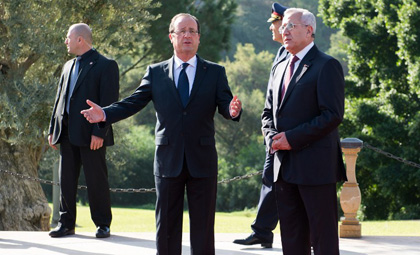
We all like to be in the good opinion of others. If those on the outside judge that which is on our inside as commendable, our day to day exchanges are a little more pleasant and easy. And if we all fall into line and behave similarly, society as a whole will function more smoothly, jobs will be found and relationships will flourish. Or so they will have us believe.
It is a home truth I was told as a child, but, simple as it sounds, I have always been a little distrustful of the concept. And I am happy that the country I live in has come firmly over to my side this week. Finally.
I grew up in a country where the phrase “What will the neighbours say” was the yardstick with which acceptable behaviour was measured. In my house it was used as a joke; luckily, my parents applied the rules they believed in, rather than what society deemed appropriate. That is not to say I did not try to push those limits as far as I could, as any self-loathing teenager is obliged to do. Triple layers of ripped stockings, jeans made skinny before they became prefab and an assorted and eclectic mix of hippie-ish garbs that would have been the envy of everyone in Haight-Ashbury were just the outward manifestations of a querulous mind and a generally bad attitude. Sorry Dad.
As time passed and I grew older, I learned to curb my tongue and belligerence a little and be more accommodating, but inside, not very much changed. I was still of strong conviction, but taking care of the sick and the dying taught me that no matter how right I felt I was, there were more important things in the world, and so I learned some diplomacy. Or so I thought.
When I moved to Egypt, it took me a while to realise how strict the social mores were and how much they differed across various social strata. By the time I had figured out how to behave respectably with my colleagues in the diving centre, Eid would come around and throw me into a whirlwind of sunglassed confusion. As a foreigner, I was allowed to float from one class to the next at will, because no matter how welcome I was made, I was still a foreigner.
The kind dive crew from Upper Egypt taught me that proper distance should be maintained at all times when greeting people since I was a married woman, but that once we got to know each other well, I became family and was fully accepted for who I was. That walking barefoot was perfectly fine, but I should never threaten anyone with my shibshib.
When Cairo folk came to town during national holidays, in a combination of Beemers and SUVs, airkisses, always two, were to be exchanged with those you only met yesterday and the shortest of skirts were to be worn. That everyone knew each other and, therefore, the partying looked wilder than it was, that appearance counted more than truth, and that what happened in Gouna never stayed in Gouna.
When I moved to Cairo I learned that my ethics were automatically suspect, being a single foreign woman, that the worst was always to be believed, yet, my direct neighbours would take me in as one of their own and that kindness from co-workers was still available in abundant supply.
Each time I had to learn what the lines were and that they should only be crossed at the peril of losing respect, which is the only commodity that counts in this country, when all is said and done. The esteem of society is often deemed more important than the one you hold yourself in, and many times, I have watched in confusion the lengths and lies people went to, just to keep up appearances. I saw my friends contort themselves into people they were not, to ensure their parents could walk down the street with their heads held high. I hung out with people who would behave wantonly on trips, only to come home and see them display a holier than thou, virginal attitude of medieval proportions. I have danced at weddings where family and connections dictated the newly formed bond, while love was not part of the equation.
What other people thought mattered more than anything else, but this week, that changed. When a vacationer in South Sinai was subjected to the unspeakable horror of sexual violence and the international press reported her ordeal, the governor of the province denied the attack ever happened – not caring which message that was sending to prospective vacationers.
Mass trials were conducted with the flimsiest application of legality and hundreds of people were summarily sentenced to death in an unprecedented show of “we are all powerful and do not care how this makes us look in the eyes of the world”.
And there I was, thinking I was the only one who had given up common sense for Lent.



